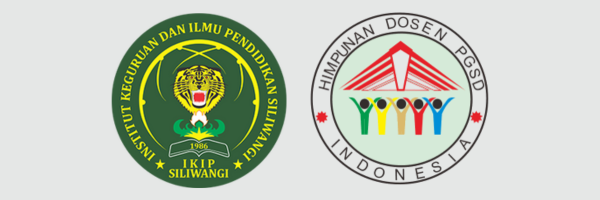Integrating Web BAIS to Improve Primary Students’ Conflict Resolution Skills in Social Interaction Lessons
DOI:
https://doi.org/10.22460/pej.v9i2.6285Kata Kunci:
Conflict Resolution Skills, Social Interaction Learning, BAIS Web, Primary StudentsAbstrak
This study aims to examine the effectiveness of the Web BAIS (Social Interaction Teaching Materials) digital platform in improving students' conflict resolution skills in social studies learning. Students' conflict resolution skills play an important role in their ability to interact, understand, and cooperate with others. The research method used was a pre-experiment with a one-group pre-test & post-test design on 20 elementary school students. The research instruments were a questionnaire validating the feasibility of the web bais and a test instrument based on conflict resolution indicators. The results of the study indicate that the development of the web bais was appropriate and feasible to use based on expert validation results. In addition, the integration of the web bais in social studies learning learning was able to improve students' conflict resolution. These findings indicate that the use of appropriate and contextual technology in social studies learning learning can be an effective strategy for developing students' conflict resolution skills.
Referensi
Abas, M., Solihatin, E., & Nadiroh. (2019). Effect of instructional models and interpersonal intelligence on the social studies learning outcomes. International Journal of Instruction, 12(4), 705–718. https://doi.org/10.29333/iji.2019.12445a
Al-Gerafi, M. A., Goswami, S. S., Khan, M. A., Naveed, Q. N., Lasisi, A., AlMohimeed, A., & Elaraby, A. (2024). Designing of an effective e-learning website using inter-valued fuzzy hybrid MCDM concept: A pedagogical approach. Alexandria Engineering Journal, 97, 61–87. https://doi.org/https://doi.org/10.1016/j.aej.2024.04.012
Al-Kalbani, M. S., & Al-Wahaibi, S. S. (2015). Testing the multiple intelligences theory in Oman. Procedia-Social and Behavioral Sciences, 190, 575–581. https://doi.org/10.1016/j.sbspro.2015.10.001
Bakken, I. V., & Buhaug, H. (2021). Civil War and Female Empowerment. Journal of Conflict Resolution, 65(5), 982–1009. https://doi.org/10.1177/0022002720983409
Bayraktar, H. V., & Yilmaz, K. Ö. (2016). Investigation of Primary School Teachers’ Conflict Resolution Skills in Terms of Different Variables. Journal of Education and Training Studies, 4(9), 222–231. https://doi.org/10.11114/jets.v4i9.1741
Beauchamp, M. H., & Anderson, V. (2010). Social: An Integrative Framework for the Development of Social Skills. Psychological Bulletin. https://doi.org/10.1037/a0017768
Behjat, F. (2012). Interpersonal and intrapersonal intelligences: Do they really work in foreign-language learning? Procedia - Social and Behavioral Sciences, 32(2010), 351–355. https://doi.org/10.1016/j.sbspro.2012.01.052
Bolton, R. (2009). People skills. Simon and Schuster.
Cahyadi, A., Hendryadi, Widyastuti, S., & Suryani. (2022). COVID-19, emergency remote teaching evaluation: the case of Indonesia. Education and Information Technologies, 27(2), 2165-2179.
Hsieh, C. C., Li, H. C., Liang, J. K., & Chiu, Y. C. (2024). Empowering teachers through principals' emotional intelligence: Unlocking the potential of organizational citizenship behavior in Taiwan's elementary schools. Acta psychologica, 243, 104142.
Chen, Y., & Xu, Y. (2021). Exploring the effect of social support and empathy on user engagement in online mental health communities. International Journal of Environmental Research and Public Health, 18(13), 6855.
Chukwuere, J. E. (2021). Understanding the Impacts of Social Media Platforms on Students’ Academic Learning Progress. Review Of International Geographical Education, 11(9), 2671–2677.
Demirci, A., & Arslan, C. (2020). Effect of Conflict Resolution Physchoeducation P Rogramme on the Secondary School S Ixth Grade S Tudents a Ttitude T Owards Violence and the Level of Aggression. Psycho-Educational Research Reviews, 9(2), 39–47.
Diarsini, M. S., Artini, L. P., Padmadewi, N. N., Ratminingsih, N. M., Utami, I. G. A. L. P., & Marsakawati, N. P. E. (2022). Challenges and opportunities of online assessment implementation during COVID-19 pandemic in Indonesia based on recent studies. European Journal of education and Pedagogy, 3(6), 82-88.
Dolati, Z., & Tahriri, A. (2017). EFL teachers’ multiple intelligences and their classroom practice. SAGE Open, 7(3), 1–12. https://doi.org/2158244017722582.
Erizar, E., Marzuki, A. G., Hidayati, T., Juliana, R., & Yulia, A. (2024). The Impact of Online Learning on Undergraduate English Students’ Achievement. Journal of English Education and Teaching, 8(2), 288-302.
Gabrielle, L. M. (2018). K-12 Learning Theory: Understanding Conditions of Empowerment and Conflict Resolution. I-Manager’s. Journal on School Educational Technology, 14(1), 52. https://doi.org/10.26634/jsch.14.1.14005.
Gena, A. M., & Jarra, K. I. (2023). An appraisal of the practice of indigenous conflict resolution mechanisms in building a culture of peace in Bale zones, Oromia National Regional State, Ethiopia. Heliyon, 9(4), e14970. https://doi.org/10.1016/j.heliyon.2023.e14970.
Hongsuchon, T., Emary, I. M. E., Hariguna, T., & Qhal, E. M. A. (2022). Assessing the impact of online-learning effectiveness and benefits in knowledge management, the antecedent of online-learning strategies and motivations: An empirical study. Sustainability, 14(5), 2570.
González-Treviño, I. M., Núñez-Rocha, G. M., Valencia-Hernández, J. M., & Arrona-Palacios, A. (2020). Assessment of multiple intelligences in elementary school students in Mexico: An exploratory study. Heliyon, 6(4).
Kalagbor, L. D., & Nnokam, N. C. (2015). Principals’ and Teachers’ Use of Conflict Management Strategies on Secondary Students’ Conflict Resolution in Rivers State-Nigeria. Research on Humanities and Social Sciences , 5(15), 96–102. www.iiste.org.
Kashani-Vahid, L., Afrooz, G., Shokoohi-Yekta, M., Kharrazi, K., & Ghobari, B. (2017). Can a creative interpersonal problem solving program improve creative thinking in gifted elementary students?. Thinking skills and creativity, 24, 175-185.
Martingano, A. J., Konrath, S., Zarins, S., & Okaomee, A. A. (2022). Empathy, narcissism, alexithymia, and social media use. Psychology of Popular Media, 11(4), 413–422. https://doi.org/https://doi.org/10.1037/ppm0000419.
Mayer, R. E. (2024). The past, present, and future of the cognitive theory of multimedia learning. Ecduational Psychology Review, 36(1), 8.
Moreno, R., & Mayer, R. (2007). Interactive multimodal learning environments: Special issue on interactive learning environments: Contemporary issues and trends. Educational Psychology Review, 19, 309-326.
Nnodum, B. I., Ugwuegbulam, C. N., & Agbaenyi, I. G. (2016). Emotional Intelligence and the Conflict Resolution Repertoire of Couples in Tertiary Institutions in Imo State. Journal of Education and Practice, 7(28), 146–150.
Rahayu, G. D. S., Maftuh, B., & Malihah, E. (2021). An Investigation of Conflict Resolution Strategies for the Students of Elementary School Teacher Education Study in Online Learning during the COVID-19 Pandemic. Mimbar Sekolah Dasar, 8(3), 281–294. https://doi.org/10.53400/mimbar-sd.v8i3.35483.
Ross, S. M., & Morrison, G. R. (2013). Experimental research methods. In Handbook of research on educational communications and technology. Routledge., 1007–1029.
Rumble, A. C., Van Lange, P. A., & Parks, C. D. (2010). The benefits of empathy: When empathy may sustain cooperation in social dilemmas.,. European Journal of Social Psychology, 40(5), 856–866.
Salimynezhad, S., Poor, N. Y., & Valizade, A. (2015). The studies of relationship between parental styles with Emotional Intelligence in elementary schools students of MAKOO. Procedia-Social and Behavioral Sciences, 205, 221-227.
Sa’odah., Maftuh, B., & Sapriya, S. (2020). Model resolusi konflik membangun kemampuan penyelesaian konflik siswa sekolah dasar. Jurnal Cakrawala Pendas, 7(2). https://unma.ac.id/jurnal/index.php/CP/article/view/2881.
Sekerci, H., & Yilmaz, F. (2021). The Role of Respectful Behaviour in the Relationship between Empathetic Tendencies and Conflict Resolution in Primary School Students. Eurasian Journal of Educational Research, 21(93), 73–94. https://doi.org/10.14689/ejer.2021.93.4.
Tirri, K., Nokelainen, P., & Komulainen, E. (2013). Multiple intelligences: Can they be measured? Psychological Test and Assessment Modeling. 55(4), 438–461.
Do, T. T., Nguyen, C. K., Nguyen, M. L. T., Nguyen, V. Q., & Tran, H. T. (2022). The interpersonal problem-solving inventory: Development and evaluation in a fourth-grade student sample. Studies in Educational Evaluation, 74, 101179.
Türk, F. (2017). Evaluation of the Effects of Conflict Resolution, Peace Education and Peer Mediation: a Meta-Analysis Study. International Education Studies, 11(1), 25. https://doi.org/10.5539/ies.v11n1p25.
Yavuzer, Y. (2012). Effect of Creative Drama-based Group Guidance on Male. Eurasian Journal of Educational Research Egitim Arastirmalari-Eurasian Journal of Educational Research, 47(47), 113–130.
Cheah, Y. H., Lu, J., & Kim, J. (2025). Integrating generative artificial intelligence in K-12 education: Examining teachers’ preparedness, practices, and barriers. Computers and Education: Artificial Intelligence, 8, 100363.
Unduhan
Diterbitkan
Terbitan
Bagian
Lisensi

Artikel ini berlisensiCreative Commons Attribution-ShareAlike 4.0 International License.
The author is responsible for acquiring the permission(s) to reproduce any copyrighted figures, tables, data, or text that are being used in the submitted paper. Authors should note that text quotations of more than 250 words from a published or copyrighted work will require grant of permission from the original publisher to reprint. The written permission letter(s) must be submitted together with the manuscript.











